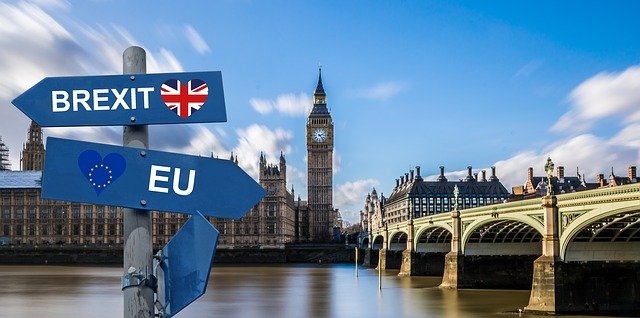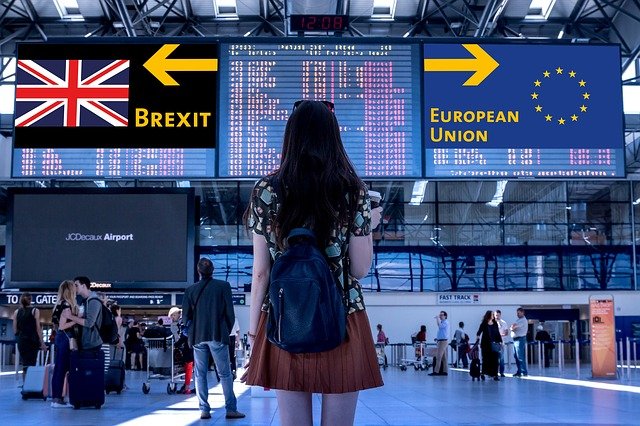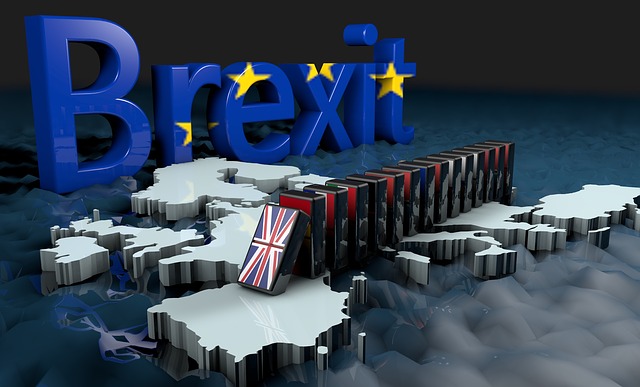By Marilena Kagkaraki,
After years of long political campaigns and discussions, on the 23rd of June, 2016, British citizens were asked in a referendum whether they wanted the United Kingdom and Gibraltar to remain or leave the European Union. The public was really influenced and bombarded by lots of politicians, talks, and promises about a better future without the E.U. regulations and monitoring, believing in more freedom.
The Brexit party, driven by Nigel Farage, gained a lot of ground, when he talked about a corrupt political system and how financially and even socially cutting ties with the E.U. would benefit the people of the U.K. He talked about the taxation and other economic obligations the U.K. pays the E.U. without reason, in his opinion, and how people from Europe moving to the U.K. are in some way a problem. Sounds kind of divisive? Well, it turns out that many people did not think so, and Brexit took place. The people of the United Kingdom unanimously voted “NO’’ and thus, to leave the E.U., believing in a better financial and a more free future in areas, like trade.

That led to a five-year discussion with the E.U. on how that was going to be implemented. There were a lot of issues to be discussed: citizens’ movement, shipping costs, financial relations, political relations, borders, and so on. Theresa May failed at the negotiations and resigned and then Boris Johnson, leader of the Conservative Party, became Prime Minister, until today. He managed to close the deal, although there are still some last discussions over the Irish borders. Thus, from January 2021, the United Kingdom is no longer part of the E.U. But, what are the consequences? What does a day look like after Brexit happened?
On a first-level notice, it does not seem like much has changed. On a deeper one, a lot has, indeed. From Europe’s perspective, it is mostly that people now cannot visit the U.K. without a visa application, all the more so live there. The biggest pool for the U.K., which is students studying at its universities, is no longer an option for the Europeans since university fees have skyrocketed and are doubled, the same as overseas students.

For the United Kingdom, things have gotten rougher. Businesses now struggle to export or import their goods with more taxation and more paperwork to provide the service. A lot of staff have left their jobs since they no longer can acquire a visa and stay legally there. Moreover, the number of students from the E.U. has declined. On a more serious note, financially, the U.K, after the year-long COVID-19 pandemic, has started to struggle, and the economy is facing gaps, unemployment on the rise alongside a divisive political climate. The most recent effect Brexit has brought about is shortages in food supplies and massive understaffing in a lot of businesses and most food chains. People in their everyday lives now face the real threat of what ’’Brexit’’ really means. They see the supermarket shelves empty and difficulties in their service, and that is only the tip of the iceberg of the ’’post-Brexit’’ era.
What does that era really hold? Only time will tell if, in the end, their decision will prove fruitful for the U.K. For now, the signs are ominous and gloomy. But, let us see what the future holds for the U.K. in this new journey alone in an international sea of giants, like the U.S. and China.
References
- O’carroll, L., Brexit: food and drink exports to EU suffer disastrous decline, The Guardian UK, Available here
- Nicholson, K., UK Food shortages: is covid or brexit to blame?, The Huffington Post, Available here




